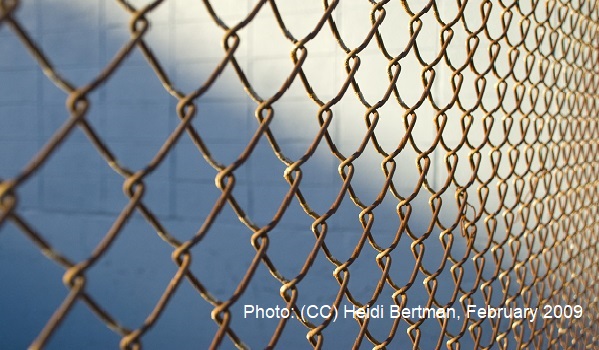The European Ombudsman opened an inquiry into the European Commission’s possible failure in ensuring that Croatia’s EU-funded border management complies with fundamental rights. Latest statistics show discrepancies in Hungary’s asylum system compared to other EU member states, including low asylum application rates and low acceptance rates. Bosnia and Herzegovina signed readmission agreement with Pakistan, paving the way for deportations of migrants stuck in the Balkan country.
On 10 November, the European Ombudsman has opened an inquiry into a complaint from Amnesty International against the European Commission from September 2020. The complaint argued that the Commission turned a blind eye to the reports of persistent abuses and failed to establish an Independent Monitoring Mechanism to ensure that Croatian authorities respected fundamental rights while conducting EU-funded border operations targeting migrants and refugees. “By continuing to fund border operations and giving a green light for Croatia’s accession to the Schengen area, the Commission abdicated its responsibilities to monitor how EU assistance is used and sent a dangerous signal that blatant human rights violations can continue with no questions asked,” Eve Geddie, director of Amnesty International’s European Institutions Office said. Croatia has received over 108 million euro under EU’s Asylum, Migration and Integration Fund (AMIF) and an additional 23.3 million euro in emergency assistance for migration and border management since 2017. Operational costs were to a large extent covered by the emergency assistance, including the salaries of police forces that have been repeatedly accused of pushbacks and abuse of migrants and asylum-seekers. EU Commissioner for Home Affairs Ylva Johansson has demanded disclosure of Croatia’s investigations into alleged pushbacks and violence against migrants in a letter sent to Croatia’s Interior Minister and Deputy Prime Minister, Davor Božinović, on 23 October. The Ombudsman’s inquiry focuses on how the Commission seeks to ensure that fundamental rights are respected by Croatian authorities during border management operations. It has set out a series of questions to the Commission to be answered by 31 January 2021.
At the Serbian-Hungarian border, access to the Hungarian territory and an asylum procedure continue to be a severely restricted, a deviation from EU law that has led to the opening of the fifth infringement procedure related to Asylum Since 2015. A statistical update by the Hungarian Helsinki Committee – an ECRE member organisation – outlines that this is not the only aspect out of synch in the way Hungary implements the European asylum acquis. In line with European wide developments, the number of first-time asylum applications in Hungary significantly decreased between 2016 and 2019. However, pushbacks and prevention of entry at Hungarian borders have increased, leaving many without access to a procedure. Between January and July 2020, a total of 10,650 attempts to enter Hungary were recorded, while only 73 people applied for asylum. In the same period, the EU registered more than 250,000 first-time asylum applications. In 2019, the recognition rate in Hungary was 8.5% while the EU average was 38%. In 2020, there was an unexpected uptick in Hungary’s recognition rate to 26.8%. However, there remains a discrepancy between Hungary and other EU member states regarding the composition of those receiving protection in terms of nationalities.
Bosnia and Herzegovina signed a readmission agreement with Pakistan on 4 November, which paves the way for deportation of Pakistani nationals from the Balkan country. Based on the agreement, readmission requests will be submitted and processed by the Bosnian Security Ministry and the Pakistani Ministry of Interior. Of the estimated 10,000 migrants who are currently stuck in Bosnia and Herzegovina, about 3,000 are thought to be Pakistani nationals.
For further information:
- ECRE, Balkans: New Brutal Pushbacks from Croatia to Bosnia, where a Humanitarian Crisis Unfolds, October 2020
- ECRE, BVMN: Report on Illegal Pushbacks and Border Violence in the Balkan Region, October 2020
- ECRE, Balkan Route: Thousands Stuck at External EU Borders Face Destitution and Violence from Locals and Those Keeping the Gate Closed, October 2020
- ECRE, Balkans: Continued Pushbacks and the Formation of a Paramilitary Practice at the Southern Borders, September 2020
- ECRE, Things are Heating up along the Balkan Route, September 2020
- ECRE, Balkans: New Report Details Illegal Pushbacks and Border Violence, August 2020
- ECRE, Slovenia Plans New Barriers at the Border while Pushbacks and Violence Continue Across the Balkans, April 2020
- ECRE, Balkans: New Protests Along the EU Borders, February 2020
- ECRE, Croatia: New Report on Torture of Asylum Seekers by Authorities, January 2020
- ECRE, Shots Fired, Arrests and Violent Push Back Reported at the Serbian Hungarian Border, January 2020
Photo: (CC) Heidi Bertman, February 2009
This article appeared in the ECRE Weekly Bulletin. You can subscribe to the Weekly Bulletin here.

